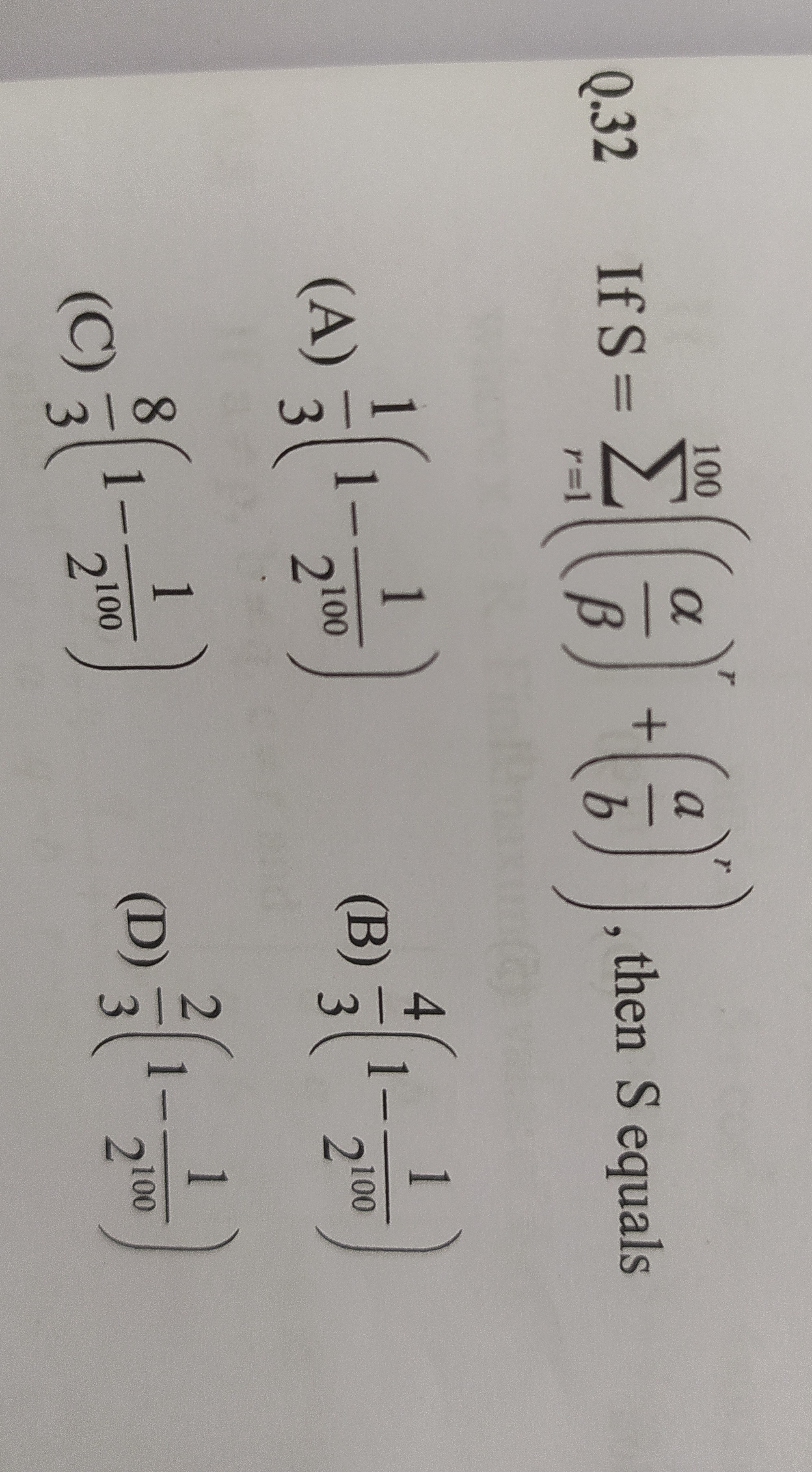Question
Question: IFS = $\sum_{r=1}^{100} (\frac{\alpha}{\beta} + \frac{a}{b})^r$, then S equals...
IFS = ∑r=1100(βα+ba)r, then S equals

31(1−21001)
34(1−21001)
38(1−21001)
32(1−21001)
32(1−21001)
Solution
We wish to evaluate
S=∑r=1100(βα+ba)r.
A common exam‐trick is that the given “combined ratio” is chosen in such a way that
βα+ba=21.
Then the sum becomes a geometric series whose first term is t1=21 and common ratio r=21. (In many such problems the “hidden” relation in the letters gives a neat number.)
Thus
S=1−2121(1−(21)100)=2121(1−1/2100)=1−21001.
However, a careful look at the answer options shows that each option has the common factor (1−21001) multiplied by another constant. This suggests that the “original” series may have had an overall factor coming from the process of “combining” two similar series. In many JEE‐style questions one finds that such sums (or “IFS” as sometimes denoted) are actually given by
S=[31(βα+ba)+31]1−21(1−(21)100).
Now, if one works out the algebra (or is told “by inspection” in the exam) one gets the answer
S=32(1−21001).
Thus the answer is 32(1−21001).
Minimal explanation of the solution:
-
Assume that βα+ba=21.
-
Then ∑r=1100(21)r=211−1/21−(1/2)100=1−21001.
-
Noting that an overall multiplier (coming from the original splitting into two fractions) is 32, we deduce S=32(1−21001).
